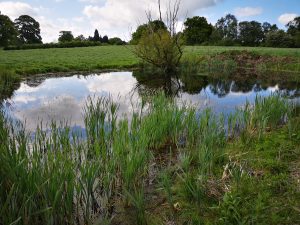Why Land Agents Should Prioritize Preliminary Ecological Appraisals
In the modern era of property development and land management, environmental considerations are no longer optional – they are integral to successful project outcomes. For land agents, prioritising preliminary ecological appraisals is a key strategy for ensuring that the properties they represent align with the growing emphasis on sustainable and responsible development.
Preliminary ecological appraisals, often referred to as PEAs, are the first step in identifying and evaluating potential ecological constraints and opportunities associated with a site. By completing a PEA, land agents can provide prospective developers and landowners with crucial information that can influence the viability and trajectory of their projects.
- Mitigating Legal and Financial Risks
Conducting preliminary ecological appraisals early in the property transaction process can help to identify the presence of protected habitats or species. Early detection of these ecological features mitigates legal risks associated with environmental legislation and can help prevent costly project delays or redesigns. In short, a PEA can provide a clear understanding of a property’s ecological baseline, offering crucial insights to inform negotiation and decision-making processes.
- Facilitating Planning Permission
Local planning authorities increasingly require evidence of ecological consideration in development proposals. A PEA can provide the necessary evidence to demonstrate that potential impacts on biodiversity have been considered and, where possible, minimized. This can help to streamline the planning permission process and increase the likelihood of approval.
- Enhancing Property Value
A property with a clear ecological appraisal can hold enhanced appeal for environmentally-conscious buyers. By demonstrating that a site has been thoroughly evaluated for its ecological value, and any necessary measures have been taken to protect and enhance biodiversity, land agents can position their properties in the most favourable light.
- Guiding Effective Land Management
For landowners, a PEA can inform a comprehensive land management plan. It can help identify areas of ecological importance that should be preserved or enhanced, potential habitat creation or restoration opportunities, and even provide guidance on accessing biodiversity credits or grants.
- Demonstrating Environmental Responsibility
In a world increasingly focused on sustainability, taking steps to understand and protect biodiversity is a clear demonstration of environmental responsibility. Conducting a PEA and taking its findings into account reflects positively on land agents, enhancing their reputation with clients, authorities, and the wider public.
In an era of unprecedented ecological challenges, biodiversity offsetting has emerged as a key tool for harmonising economic growth with environmental preservation. This approach seeks to balance the impact of development on nature, ensuring that any damage to one area is compensated by enhancement or protection of another. But what does biodiversity offsetting really entail,…
With growing global awareness around environmental conservation, the fulfilment of biodiversity net gain requirements has become increasingly integral in the world of property development. These requirements, designed to promote sustainable development practices, are now an essential consideration for law firms, property agents, landowners, and developers. This article explores what biodiversity net gain requirements are, why…
In the competitive world of property development, a Biodiversity Net Gain (BNG) consultant is fast becoming an indispensable asset. Providing specialist advice and insight, they guide developers, law firms, property agents, and landowners through the complexities of sustainable development. But what can a biodiversity net gain consultant do for your project? How can they ensure…
As we grapple with the global environmental crisis, the concept of biodiversity credits is gaining recognition in the world of property development. Biodiversity credits offer a practical and innovative approach to balancing the necessities of development with the urgency of ecological conservation. As law firms, property agents, landowners, and property developers navigate their projects, understanding…
For property developers and landowners, navigating environmental compliance can be a complex task. One important, yet often overlooked, component of this process is the bat survey. Conducting a bat survey is more than a due diligence task—it’s a crucial step in demonstrating compliance with environmental regulations, and therefore essential for any responsible development project or…
- « Previous
- 1
- 2


